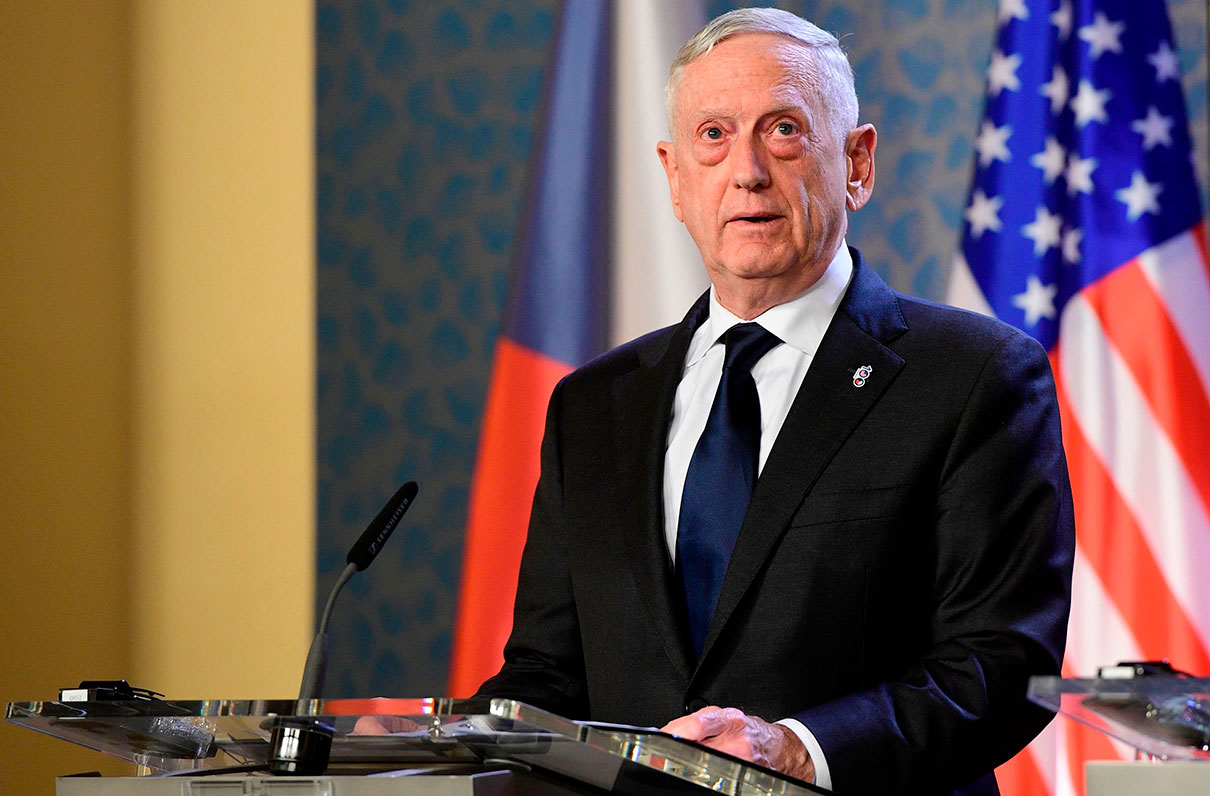Fresh from meetings in Beijing and the Middle East, Defense Secretary James Mattis visited the U.S. Institute of Peace in Washington, D.C., on Tuesday to offer his perspective on the U.S. defense strategy.
Mattis, whose public speaking engagements have been rare of late, spent an hour sharing his thoughts on topics ranging from the space force to the war in Afghanistan.
You can watch his full 68-minute discussion here.
Here are some key takeaways from the Institute's discussion with Mattis:
On preventing election tampering: Mattis said the top priority of U.S. Cyber Command is maintaining the security of the upcoming election on Nov. 6. The U.S. military can't do it alone, he said, but it has an obligation to protect the country.
The military tracks hacking efforts and works with the FBI to alert internet providers, he said.
"It's an all hands-on-deck effort to keep our democratic process free and unencumbered," he said. "When it comes to protecting the country in this day and age, it's not just about guns and ships and that sort of thing. This is a powerful weapon in the hands of people that know what they're doing and our adversaries do."
On space: Mattis said the U.S. must be prepared to not only defend its assets in space, but go on the offensive.
Specifically, we must be able to defend satellites used for military intelligence, navigation, communication, commerce and banking.
“We're going to have to defend what we have,” he said. “But we're going to have to be prepared to use offensive weapons in space. This is not an area we want to be second place in.”
On Afghanistan: Mattis defended the ongoing effort in Afghanistan to support Afghan Security Forces with the train, advise and assist mission.
“We never thought in the military this was going to be an easy job,” Mattis said. “If we want to protect ourselves … it's worthwhile.”
On allies: The United States must maintain its relationships with its allies, Mattis said.
“One of the reasons we need allies in this world: Nations with allies thrive, nations without them die,” he said. “We can work together with them and get a much better return on that effort. No one nation on its own can defend itself.”
Amanda Dolasinski is MOAA's staff writer. She can be reached at amandad@moaa.org. Follow her on Twitter @AmandaMOAA.
